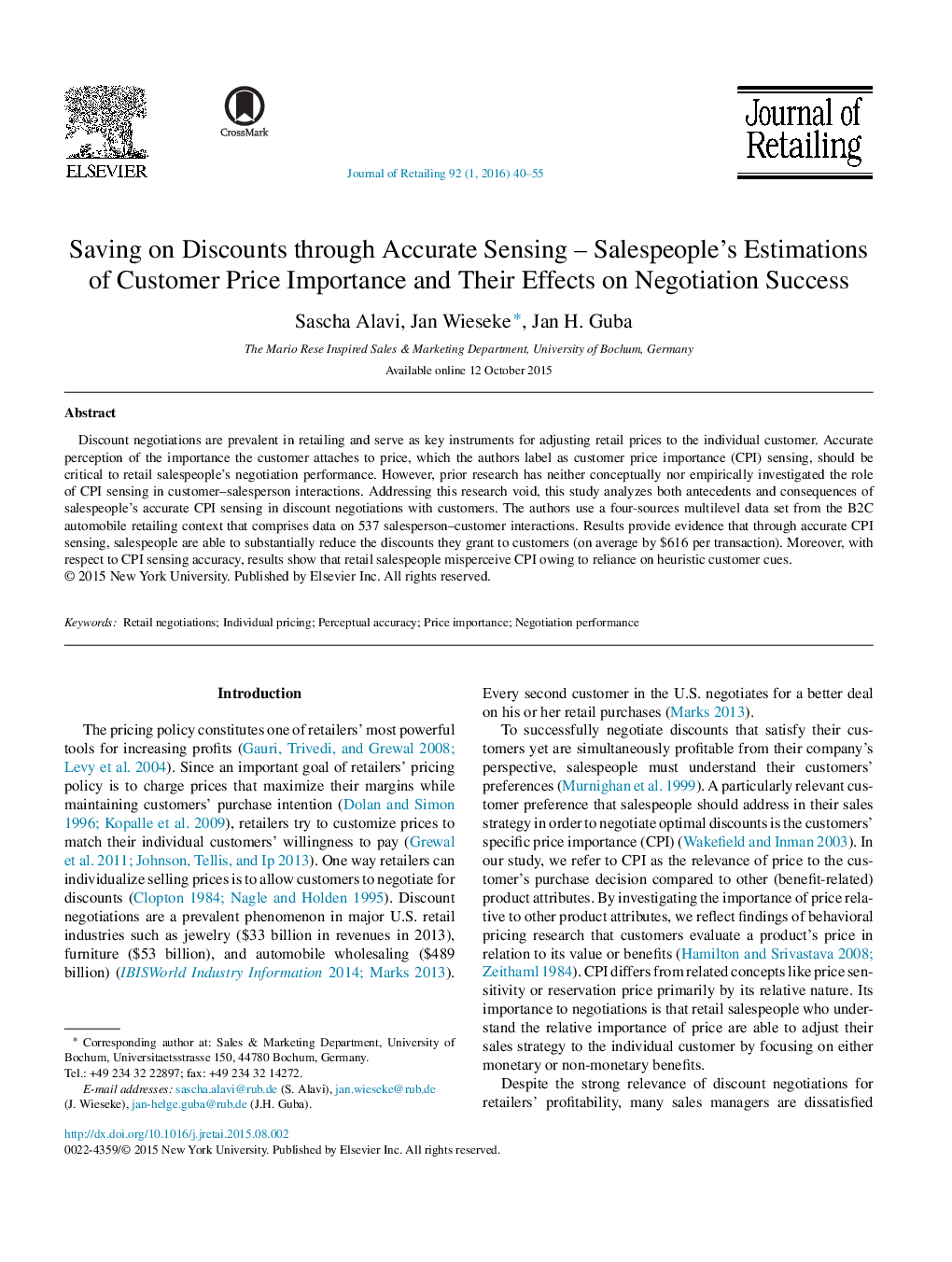| Article ID | Journal | Published Year | Pages | File Type |
|---|---|---|---|---|
| 886236 | Journal of Retailing | 2016 | 16 Pages |
•Customer price importance (CPI) sensing fosters performance in retail negotiations.•Accurate CPI sensing does not undermine customers’ purchase intention.•537 salesperson–customer negotiations were investigated.•Revenue goal importance increases the effectiveness of CPI sensing.•Salespeople underestimate CPI with increasing customer age and relationship length.
Discount negotiations are prevalent in retailing and serve as key instruments for adjusting retail prices to the individual customer. Accurate perception of the importance the customer attaches to price, which the authors label as customer price importance (CPI) sensing, should be critical to retail salespeople's negotiation performance. However, prior research has neither conceptually nor empirically investigated the role of CPI sensing in customer–salesperson interactions. Addressing this research void, this study analyzes both antecedents and consequences of salespeople's accurate CPI sensing in discount negotiations with customers. The authors use a four-sources multilevel data set from the B2C automobile retailing context that comprises data on 537 salesperson–customer interactions. Results provide evidence that through accurate CPI sensing, salespeople are able to substantially reduce the discounts they grant to customers (on average by $616 per transaction). Moreover, with respect to CPI sensing accuracy, results show that retail salespeople misperceive CPI owing to reliance on heuristic customer cues.
Graphical abstractFigure optionsDownload full-size imageDownload as PowerPoint slide
